We're overdue for a shift towards a more just, cooperative & ecologically sustainable culture
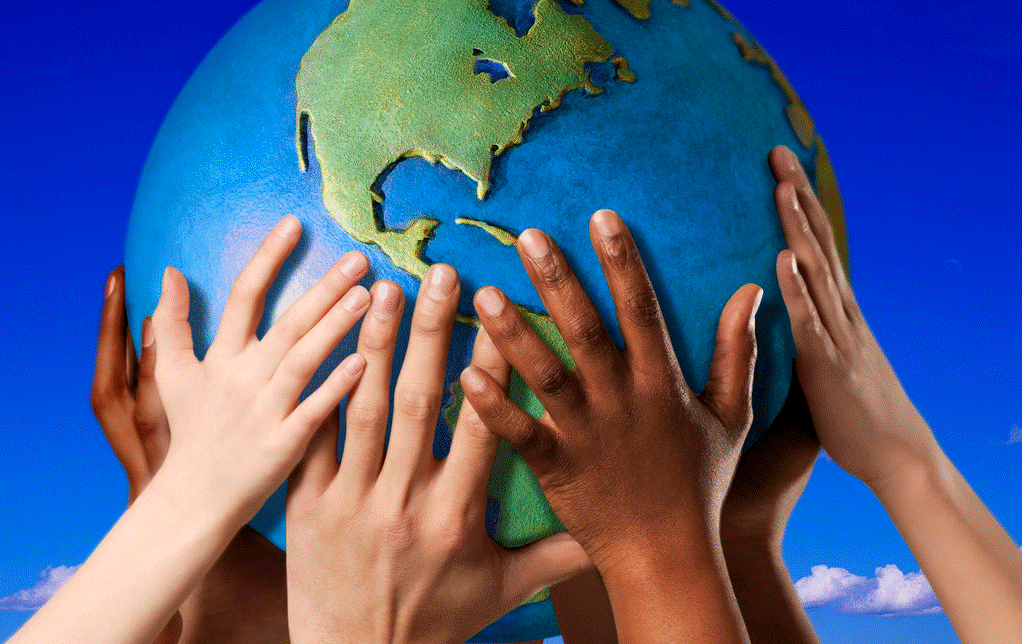
All around the world, we find ourselves in a tangle of problems -
- economic, cultural, environmental and political -
When we look clearly & fearlessly at these serious global issues, it helps ease the way ... helps us understand what changes are necessary, so that we can live in better harmony with each other, and with nature as well.
Let's learn to live more lightly on Earth, our beautiful home.
Together we enhance the growing wave of peace and love.
if not now, then when?
See what grabs your attention as you move through this site. It's designed to give a basic overview of the many ways we can adapt to our changing reality. We hope you'll be inspired to take action.
"The best solution to a problem is the simplest and nothing simpler."
Albert Einstein

Thank you.

"We live in a kind of dark age, craftily lit with synthetic light, so that no one can tell how dark it has really gotten.
But our exiled spirits can tell.
Deep in our bones resides an ancient singing couple who just won't give up making their beautiful, wild noise.
The world won't end if we can find them." Martin Prechtel ( contemporary Pan American shaman)

Here we are - immersed in a dazzling, super-sized world. So very sculpted and fast and furious!
Sometimes, it's sheer complexity overwhelms our sense of what we know to be real, natural and precious.
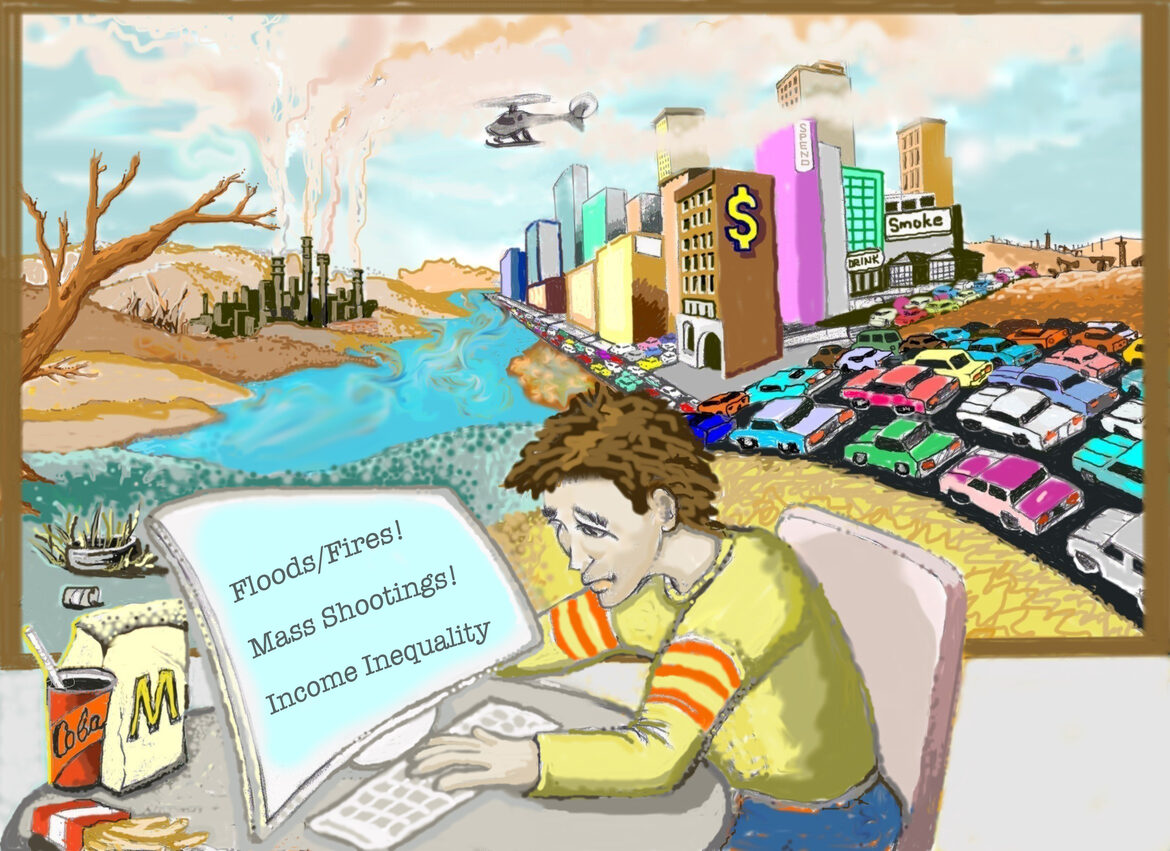
Hello! Life is way out of whack! http://robertcarson.webs.com/
If you don't know it intellectually, you probably feel it in your gut, or your heart.
Just look at the evidence:
* Habitat destruction is rampant. We've got rapidly growing deserts, melting glaciers, logged off rain forests, and dead zones in our oceans. Habitat loss is the primary cause of higher extinction rates.
* Species of plants and animals are dying off at ever increasing rates. Human activity has slashed animal populations by nearly 70 percent in the last 50 years. "We should care deeply about the unraveling of natural systems because these same resources sustain human life.” WWF
* Pathogens travel throughout the globe at jet speeds, infecting millions of people in short order. Look how disruptive Covid 19 has been.
* Income and wealth inequality is higher in the United States than in almost any other developed country, and it is rising. Rising inequality is eroding trust in democracy and fostering the spread of authoritarian movements. (Council on Foreign Relations) Meanwhile over 50% of the world's population lives in crushing poverty on about $2.50 US per day. NYTimes
* Teens who should be in the height of their natural vitality suffer with record rates of suicide, anxiety, depression and obesity.
* We're flooded with entertainment and advertising that glorifies violence, decadent materialism, crime and porn, and makes it seem all too commonplace.
* The world is bristling with weapons, from millions of small armaments to vast stores of nuclear bombs, at a time when tensions run high. Wide access to firearms and loose regulations lead to more than 39,000 men, women and children being killed with guns each year in the U.S.A.-Amnesty International
* The USA imprisons 1 out of every 100 citizens - more per capita than any other nation in the world. We have more prisoners than farmers!
I could go on and on.
No doubt there are issues you'd add to this list yourself.
We don't need to look far to see that things aren't as they should be.
Rich or poor, believer or skeptic, regardless of your race, creed or political affiliation,
you know this isn't the way things are supposed to be.
 We stand at a crossroad.
We stand at a crossroad. 
We've got ourselves into a convergence of problems
- ecological, political, economic and cultural -
in an increasingly complex, polarized, and energy dependent world.
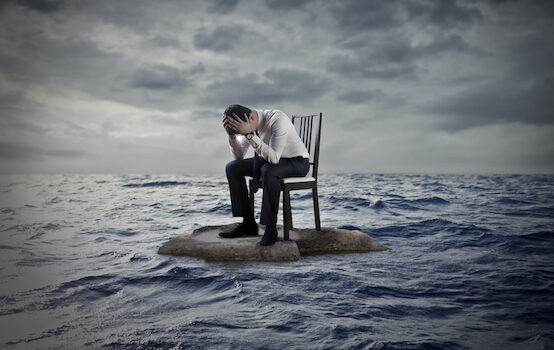
"The ecological and social crises we face are inflamed by an economic system dependent on accelerating growth.
This self-destructing political economy sets its goals and measures its performance in terms of ever-increasing corporate profits ... in other words by how fast materials can be extracted from Earth and turned into consumer products, weapons, and waste."
"According to the Global Footprint Network, humans currently consume at a rate 1.7 times what Earth can sustain."(David Korten)
We are trashing the planet we depend on. In order for billions of us to live modern, materialistic lives, we abuse our mother Earth.
Our economic system is based on a lie ... on the belief that constant growth is possible and desirable.
Unfortunately, nothing can grow ever larger - on and on - continuously.
No matter how much we tinker with nature, we are still subject to her cycles. All natural systems cycle through ups and downs. This includes empires like ours, that rise and get far too big, and then collapse under their own weight and complexity.
As we humans move through the seasons of life, there will always be times of abundance and lean times as well.
Such is the nature of nature.
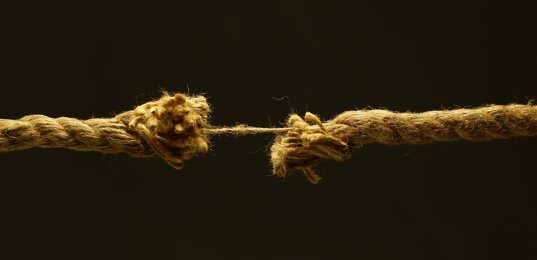
"In order to maintain our way of living, we must tell lies to each other, and especially to ourselves." Derrick Jensen
* Continuing on, with business as usual, won't resolve our dilemma. *
"A revolution is underway, because people are realizing that our needs can be met without destroying our world.
We have the technical knowledge, the communication tools and material resources to grow enough food, ensure clean air and water, and meet rational energy needs."
"We are beginning to wake up, as from a millennia long sleep, to a new relationship to our world, to ourselves and each other."
Joana Macy - a contemporary Buddhist teacher and scholar - has labeled this time as The Great Turning.
She says ...."this is a most extraordinary and beautiful moment. Because in this moment we can make a choice for loving life and taking care of each other."
"Whether or not it is recognized by corporate-controlled media, the Great Turning is a reality."
"Although we cannot know yet if it will take hold in time for humans and other complex life forms to survive, we can know that it is under way. And it is gaining momentum, through the actions of countless individuals and groups around the world. To see this as the larger context of our lives clears our vision and summons our courage."
We are making the shift from a competitive, profit-based, industrial society to a cooperative, life sustaining culture in harmony with nature.
Here and now, in our highly connected world, we have the capacity to look at our history, learn from our mistakes and set a new course.
* CHANGE IS HAPPENING REST ASSURED CHANGE IS CONSTANT *

* REST ASSURED CHANGE IS CONSTANT CHANGE IS HAPPENING *
Like it or not, a major shift is right at hand.
We'll want to stay level headed, so that we can adapt and make the much needed changes, big and small.
"If the world is to be healed through human efforts, it will be by ordinary people whose love for this life is even greater than their fear." (Joanna Macy)
When we're fearful, we tend to regress & fall prey to muddled thinking.
Fear makes us more susceptible to manipulation by the powers that be.
Courage helps us look realistically at our shared reality on this beautiful planet.
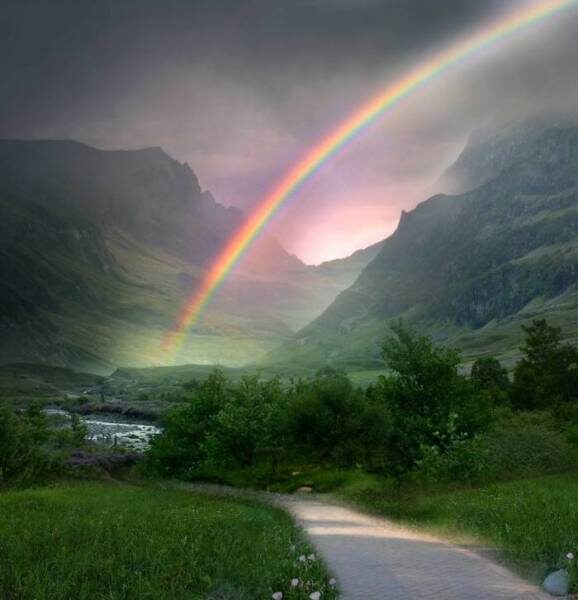
"Courage is more exhilarating than fear and in the long run it is easier." Elanor Roosevelt
* We can choose to work cooperatively & re-embrace nature's way.
- slowing down to nature's pace
- living much more lightly on the Earth
- protecting and preserving our natural resources
- consuming less and sharing more, so we all can live with a modicum of comfort and dignity.
"Living with less is crucial, not only to ecological survival, but to long-term human fulfillment." ( "All My Bones Shake" by Robert Jensen)
* We can decolonize our minds, and distance ourselves from the false values foisted on us by this greedy, power hungry, and imperialistic form of capitalism that is all around us ... embedded and intertwined in so many aspects of our lives.
* We can rapidly re-localize our lives, our economies, and our food sources and quit relying on vast amounts of non-renewable energy to move products and people around the globe.
"Across the world millions of people are actively resisting the process of corporate globalization while simultaneously creating viable local alternatives in the here and now. This powerful emerging movement represents a radical departure from 'business as usual'
Proponents of this approach call for 'SMALL SCALE ON A LARGE SCALE' rather than one-size-fits-all, 'too big to fail' blueprints. (localfutures.org) "In countless localities, like green shoots pushing up through the rubble, new social and economic arrangements are sprouting." (Joanna Macy)
* We can heal & transform ourselves, our families and communities. Let's face it - most of us could use some mending. It's hard not to feel damaged, when you live in a fundamentally broken culture. Fortunately, the collective wisdom of the ages is available to us in these amazing technological times. There's a whole world of knowledge out there to help us heal our bodies, psyches and spirits.
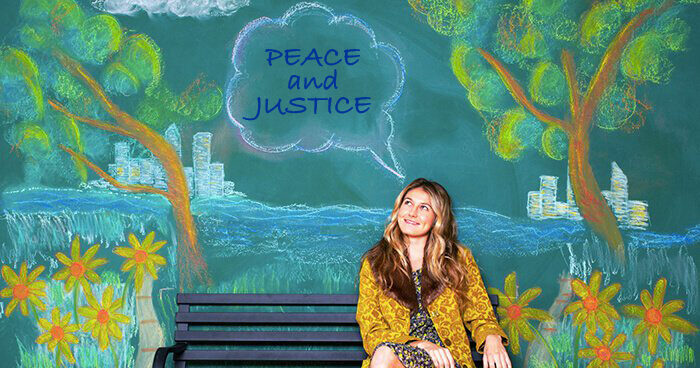
- Green Up - Power Down -
A viable human future depends on living with less. When we see the big picture clearly, we can embrace the lifestyle and cultural changes needed to live in greater harmony with the planet and each other.
As we heal ourselves, we naturally begin to reweave the supportive bonds of family and community. We become one with the welcoming wave of peace and justice that encircles the globe. We join with the millions who long to move beyond a world of continuous warring, cut-throat corporate profiteering and rapacious resource extraction.
 Yes, it's time to wake up and face the facts.
Yes, it's time to wake up and face the facts. 
KARMA IS REAL - WE REAP WHAT WE SOW
Just look at the results: All our fabulous technology & industry has created quite a toxic stew in our air, soil and water!
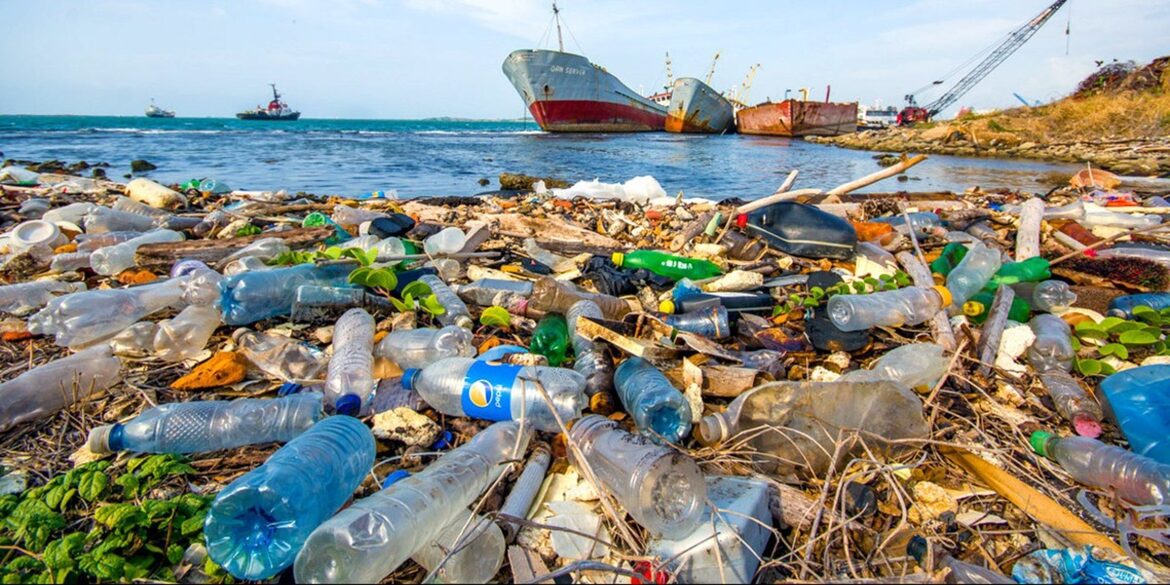
" More than 30 years of environmental health studies have led to a growing consensus that chemicals are playing a role in the incidence and prevalence of many diseases and disorders in our country, including:
* Leukemia, brain cancer, and other childhood cancers * Breast cancer * Asthma
* Difficulty in conceiving and maintaining a pregnancy * Learning and developmental disabilities
"A growing number of everyday products - including some bug sprays, cleaning fluids and flame-retardant furniture could lead to an increased risk of brain and behavioral disorders in children." TIME magazine
The EPA has been able to require testing on just 200 of the more than 80,000 chemicals produced and used in the U.S., and just five chemicals have been regulated under this law. saferchemicals.org

Look at the 72,000 tons of radioactive nuclear waste lying in storage in the U.S.
There are vast amounts of nuclear waste - much of it in aging, over-crowded facilities - with the potential to poison life for generations to come. The waste remains dangerous for tens of thousands of years into the future ! The amount of waste keeps growing at the nation's 104 operating reactors at a rate of 2,200 tons every year.
As of spring 2019, the nuclear reactors that were damaged by the 2011 earthquake and tsunami in Japan are still leaking radiation. "Radioactive water is leaking out of this plant as fast as it's leaking in. So, you've got ... as much as a 1000 tons of water a day leaking off of the mountains around Fukushima into the basement of this plant." (nuclear-energy consultant Arnie Gundersen)
The radiation is spilling out of Fukushima into an ever-growing radioactive plume in the Pacific Ocean.
What about the hundreds of millions of gallons of oil that spilled after the explosion of the Deepwater Horizon offshore drilling rig in? "The 2010 oil disaster caused incomparable damage to an already-stressed Gulf Coast ecosystem. From dolphins to sea turtles to birds, we still are seeing the real and lasting environmental impacts of one of the worst oil spills in our nation’s history." How many generations of marine and seashore wildlife will be adversely affected by all that oil, plus the millions of gallons of toxic chemical dispersants used in the clean--up? Environmental Defense Fund https://www.edf.org/ecosystems/whats-ahead-gulf
When problems such as these are not fully addressed, they don't just magically go away.
No, in fact, the problems we ignore just get bigger & bigger and demand our attention!
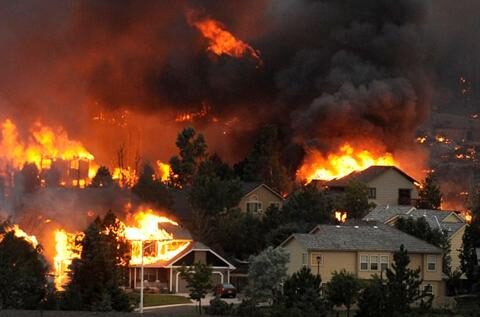
* Further global warming (an upward trend in global mean temperature.) With the 20 warmest years occurring over the past 22 ... a consistent warming trend couldn’t be clearer (Climate Central). The world is now about 1.1C warmer than it was in the 19th Century - and the amount of CO2 in the atmosphere has risen by 50%.
* Sea level rise ... perhaps three feet in the coming century. With about half the world's population of seven billion people living near coastlines, a 3 foot sea level rise would endanger cities around the globe, including New York, London, Shanghai, Venice, Sydney, Miami and New Orleans.
* An increase in the frequency of extreme weather events. The past decade overflowed with extreme weather events. Heatwaves and floods which used to be “once in a century” events are becoming more regular occurrences. For example:
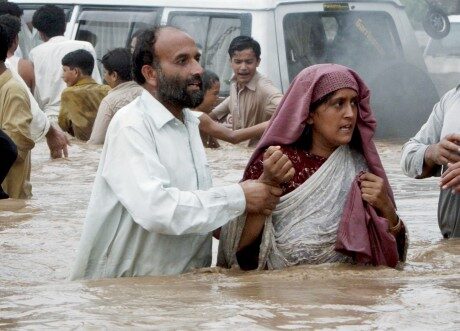
Our increasingly warmer air and oceans put significantly more moisture into the air, which then comes down as more extreme downpours. In 2014 parts of Florida & Alabama were deluged with 22-26 inches of rain in 24 hours. Three months' worth of rain fell on Bosnia in three days, creating the worst floods since records began 120 years ago.
2017 - The United States faced hurricane after hurricane after hurricane as well as forest fires and mudslides out West. There were 16 natural disasters in the U.S. alone, which spawned a new record of more than $306 billion in damages. www.pbs.org/newshour/science/2017-a-year-of-extreme-disaster
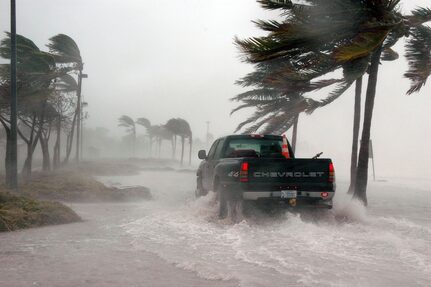
The year 2019 concluded a decade of exceptional global heat, retreating ice and record sea levels driven by greenhouse gases from human activities. In fact, 2010 to 2019—was hotter than any other decade in at least the past 1,300 years!! Eight of the 10 warmest years since measurements began occurred in this decade.
2020 - "The Atlantic hurricane season produced an extraordinary 30 named storms ... more than double the activity of an average season." U.S. wildfires burned 10.25 million acres ... the highest yearly total since accurate records began in 1983." (Eco Watch) The US was hit with a record number of major disasters ... costing tens of billions of dollars and resulting in several hundred deaths. (The Guardian)
A decade of deadly heat waves, wildfires and widespread flooding show global warming kicking into overdrive. Scientists have warned that many of these extremes are linked and intensify each other, pushing the global climate system ever-closer to tipping points that could lead to the breakdown of ecological systems—already seen in coral reefs and some forests—and potentially trigger runaway warming. (Bob Berwyn - InsideClimate News)
July 2023 was the hottest month ever recorded in human history. And now, it's official, 2023 was the hottest year in roughly 100,00 years.
Observations show that warming of the climate is unequivocal.
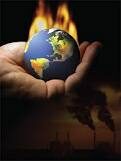 Global warming is real.
Global warming is real.
The global warming observed over the past 50 years is due primarily to human-induced emissions of heat-trapping gases. These emissions come mainly from the burning of fossil fuels (coal, oil, and gas), with important contributions from the clearing of forests, agricultural practices, and other activities.
While we cannot reverse climate change, we can actively work to reduce greenhouse gas emissions and slow down the impacts. We still may avoid some of the worst effects. Major changes need to come from governments and businesses, but scientists say some small changes in our lives can limit our impact on the climate:
• take fewer flights
• live car-free or use an electric car
• reduce consumption of meat and dairy products
• reduce your energy use
• buy energy efficient products, such as washing machines, when they need replacing
• improve your home insulation
• switch from a gas heating system to an electric heat pump
The U.N. Intergovernmental Panel on Climate Change (IPCC ) urges countries to make disaster management plans to adapt to the growing risk of extreme weather linked to human-induced climate change. Some serious concerns include:
* Loss of water resources for millions of people due to melting glaciers. Changes in the quality and quantity of fresh water available for people and the environment are increasing risks and costs to agriculture, energy production, industry and recreation.
* Global food supplies put at risk by more frequent extreme weather. Rising temperatures, extreme heat, drought, wildfire on range lands and heavy downpours are expected to increasingly challenge the quality and quantity of crop yields, livestock health, price stability and rural livelihoods. www.projectcensored.org/
* Climate change threatens the health and well-being of people by causing increasing extreme weather, changes to air quality, the spread of new diseases by insects and pests, and changes to the availability of food and water.
* Massive changes in plant and animal life, probably including a wave of extinctions. It's estimated that one-fourth of Earth's species could be extinct by 2050.
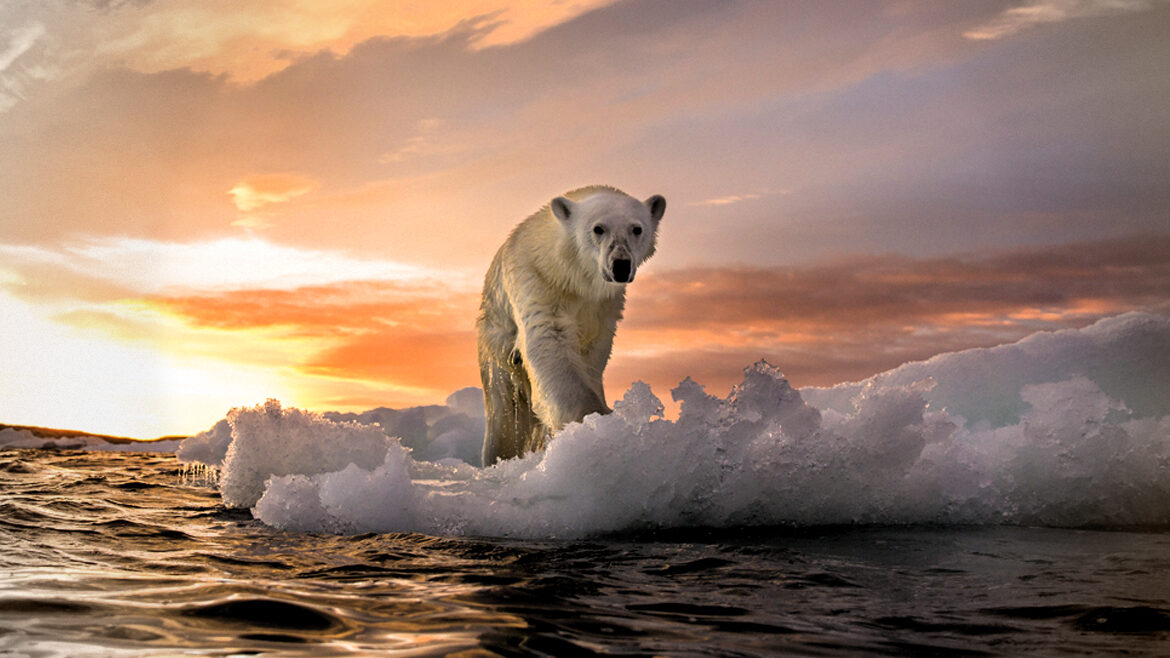
Obviously, global climate change is not a future problem. It is already beginning to transform life on Earth.
We see that climate change manifests itself in myriad ways and is experienced by every living being, although not equally. Throughout the world, the economically disadvantaged and people of color—those who have contributed the very least to the root causes of climate change—are the most likely to suffer from its worst impacts.
Around the globe, seasons are shifting, temperatures are climbing and sea levels are rising. And meanwhile, our planet must still supply us and all living things with air, water, food and safe places to live. If we don't act now, climate change will rapidly alter the lands and waters we all depend upon for survival, leaving our children and grandchildren with a very different world."
* NRDC - https://www.nrdc.org/stories/what-climate-change#whatis *The Nature Conservancy * The Nation * BBC News - https://www.bbc.com/news/science-environment-24021772 * The Guardian * New York Times * Time * NASA - https://climate.nasa.gov/effects/ * EPA - https://www.epa.gov/climatechange-science/basics-climate-change
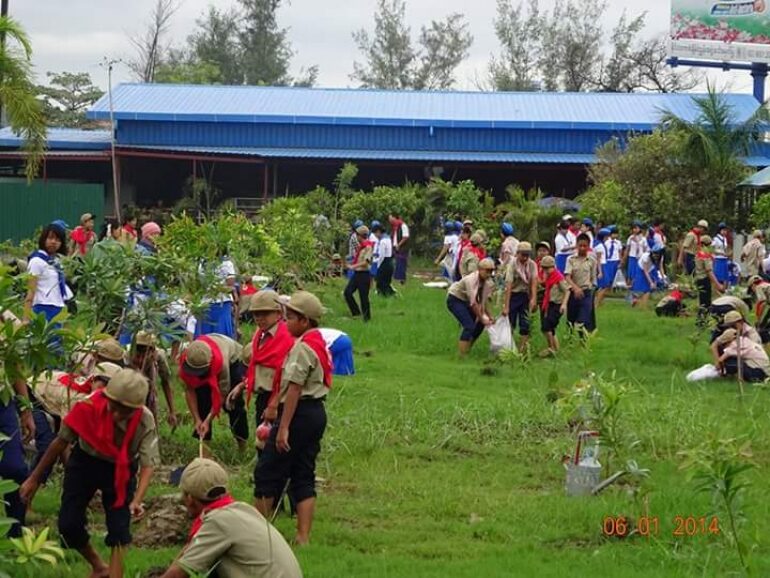
”By defending, restoring and re- establishing forests, peatlands, mangroves, salt marshes, natural seabeds and other crucial ecosystems, large amounts of carbon can be removed from the air and stored. At the same time, the protection and restoration of these ecosystems can help minimize a sixth great extinction, while enhancing local people’s resilience against climate disaster. Defending the living world and defending the climate are, in many cases, one and the same.” - Greta Thunberg
"The choice is ours: form a global partnership to care for Earth and one another or risk the destruction of ourselves and the diversity of life. Fundamental changes are needed in our values, institutions, and ways of living."

Who knows what the near future will bring?
Each new decade brings more amazing change than the last.
Maybe its time to assess the consequences of our modern cultural choices.
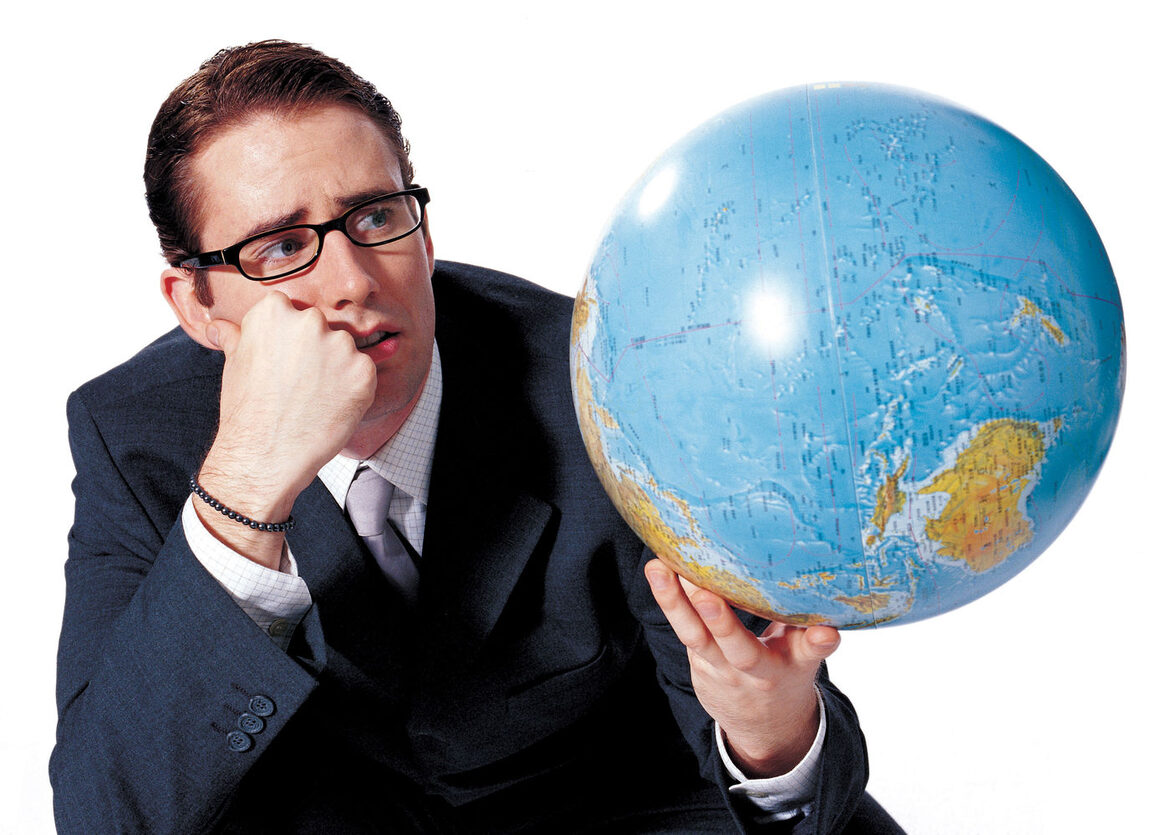 Are we on the right track?
Are we on the right track?
These days, we rely on a vast and complicated global system of commerce, energy and communication to deliver our day-to-day needs. So far it's worked fairly well. I can gas up my car and drive to the grocery store whenever I please.
But what if the proverbial shit hits the fan? What if for instance, there's just not enough cheap oil left to ship goods and food half-way around the world? Shouldn't we be shoring up our local supply systems? "Less reliance on global supply chains would help restore the social and environmental health of local communities." (When Less is More - David Korten -Yes Magazine)
"Until very recently in our history, we organized our economies around the labor and needs of local communities. This facilitated repair, reuse, recycling, and resilience, and allowed communities to work within the capabilities of the Earth’s regenerative systems. But global trade rules first introduced in the 1990s stripped place-based living communities of control of their markets, labor, and other resources, and allowed transnational corporations to consolidate their power without concern for the well-being of workers, customers, and nature. China has become the epicenter of a highly fragile interdependent system of global supply chains involving the massive, environmentally destructive long-distance movement of material goods by sea, land, and air. "
It's time to get back to producing most of the food and goods we need, right here, in our own geographical regions.
* We'll want to preserve the farmland that remains ... and be thankful for the agricultural land that hasn't been paved over, or turned into shopping malls or McMansionvilles. In time we'll probably want to de-pave and reclaim vast areas that have been given over to car culture.
* I see the growing trend to replace home and school lawns with veggie gardens and fruit trees as a hopeful one. Whether you grow corn, beans and squash in a suburban lawn or seasonal greens on an urban rooftop, it feels good to be personally involved in producing some of your own food.
* As the average age of our farmers gets older and older, we'll need to inspire new generations of farmers and gardeners. And come up with clever solutions to acquiring land that doesn't cost a fortune.
What if our technologically based health care system is overwhelmed by more and more outbreaks of contagious diseases, resistant to drugs and spread at the pace of jet travel? Just look at the far reaching effect Covid 19 has had on our world ! We'll be so much better off, if we have more widespread knowledge of basic, natural and effective healing techniques, along with modern medicines.
And if saving our precious, protective atmosphere means saving our rain forests - the lungs of the earth, then we'll need to quit clear-cutting vast stretches of tropical, temperate and arboreal forest lands. Rather than shipping wood around the globe, we'll be better off with plenty of folks, right here in our own communities, who know how to build with the resources that are right at hand: whether that's stone, cob, native woods or bamboo, steel, adobe or recycled plastics.
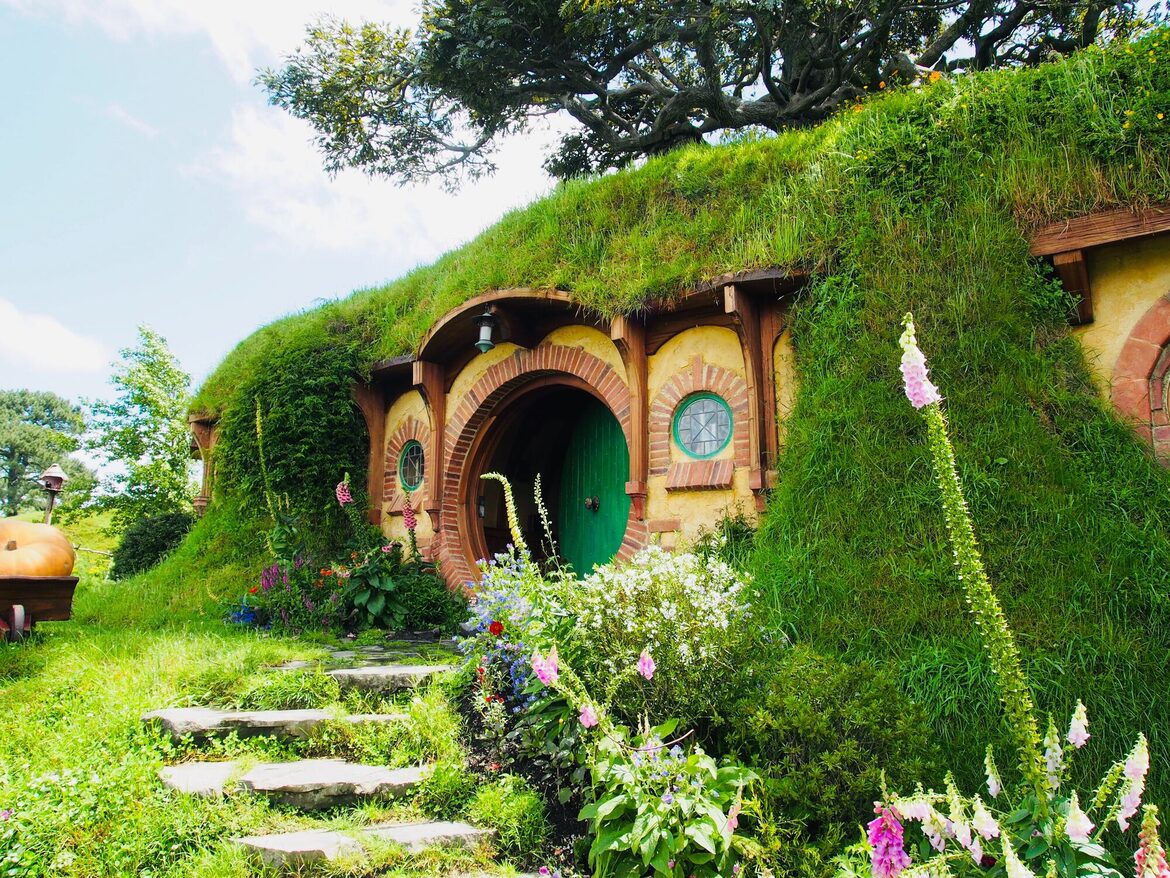 Yes - I'm thinking that right here, right now, in our own bioregions, it's a perfect time for large numbers of us to regain and perfect the skills and knowledge of basic, everyday life. Basics like:
Yes - I'm thinking that right here, right now, in our own bioregions, it's a perfect time for large numbers of us to regain and perfect the skills and knowledge of basic, everyday life. Basics like:
* education and care of our young, our elderly and disabled populations
* home, building & infrastructure repair & maintenance
* natural medicines and alternative healing technique
*bioremediation of our damaged ecosystems
* organic food production
Just a few generations ago, there was widespread knowledge of basic life skills. These days it's all about specialization. Large numbers of Americans don't even know how to cook, let alone garden, hunt, gather and preserve food.

Here's a little cautionary tale - about widespread crisis and how it can play itself out in different locales:
Both of my parents were young during the Great Depression of the 1930s. They resided in opposite corners of the same state, and had quite different memories of a time that left so many people suffering. My dad recalled hunting for chunks of coal that fell off the trains, to help the family cook and heat the house. He foraged for wild greens and mushrooms to supplement meager fare. It was a difficult, hardscrabble time.
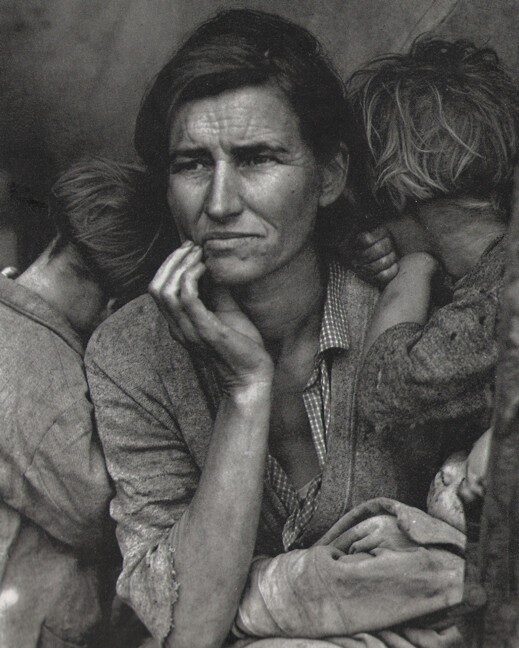
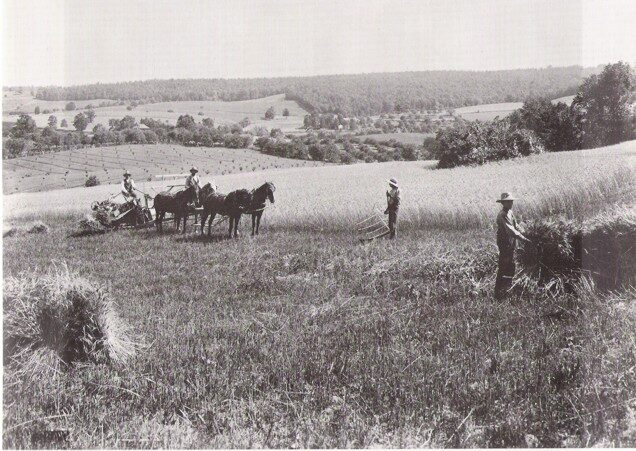
( photo by Dorothea Lange) (photo by Adam Clark Vroman)
My mother, on the other hand, grew up in a farming community - in Mennonite and Amish country - among people of faith, who had lived in cooperation with each other, practicing good land stewardship, generation after generation. She says the Depression was felt so much less in her region. The tumbling world economy was a mere ripple pressing in from the outside.
The moral here?
Whatever change comes our way, we'll weather it better if we're living self-sufficiently, in closer harmony with the Earth and each other.
* CHANGE IS HAPPENING * REST ASSURED * CHANGE IS CONSTANT *

* REST ASSURED * CHANGE IS CONSTANT * CHANGE IS HAPPENING *
All around the planet, throughout the ages, wise ones have predicted that eventually we'd face a major turning point in the BIG wheel of time. A transition time, with the potential for destruction and turmoil, and also the potential for rebirth and renewal.* Here We Are * Right Now *What do you call this changing time we're in?Global Climate Change? ... Peak Oil? ... Armageddon? The end of a 5,125 year cycle of the Mayan calendar ? ... The transition to the Aquarian Age? Maybe the zombie apocalypse, ha! Some say we're living in the Kali Yuga, a dark age when evil comes to the surface to be destroyed just before the coming Golden Age.
I like the term - Anthropocene.
Humanity's impact on the Earth is now so profound that a new geological epoch, the Anthropocene, has been declared. Experts say the new epoch began around 1950, and is likely to be defined by radioactive elements dispersed across the planet by nuclear bomb tests. An array of other signals, including plastic pollution, soot from power stations, and vast amounts of concrete may also define this new era.
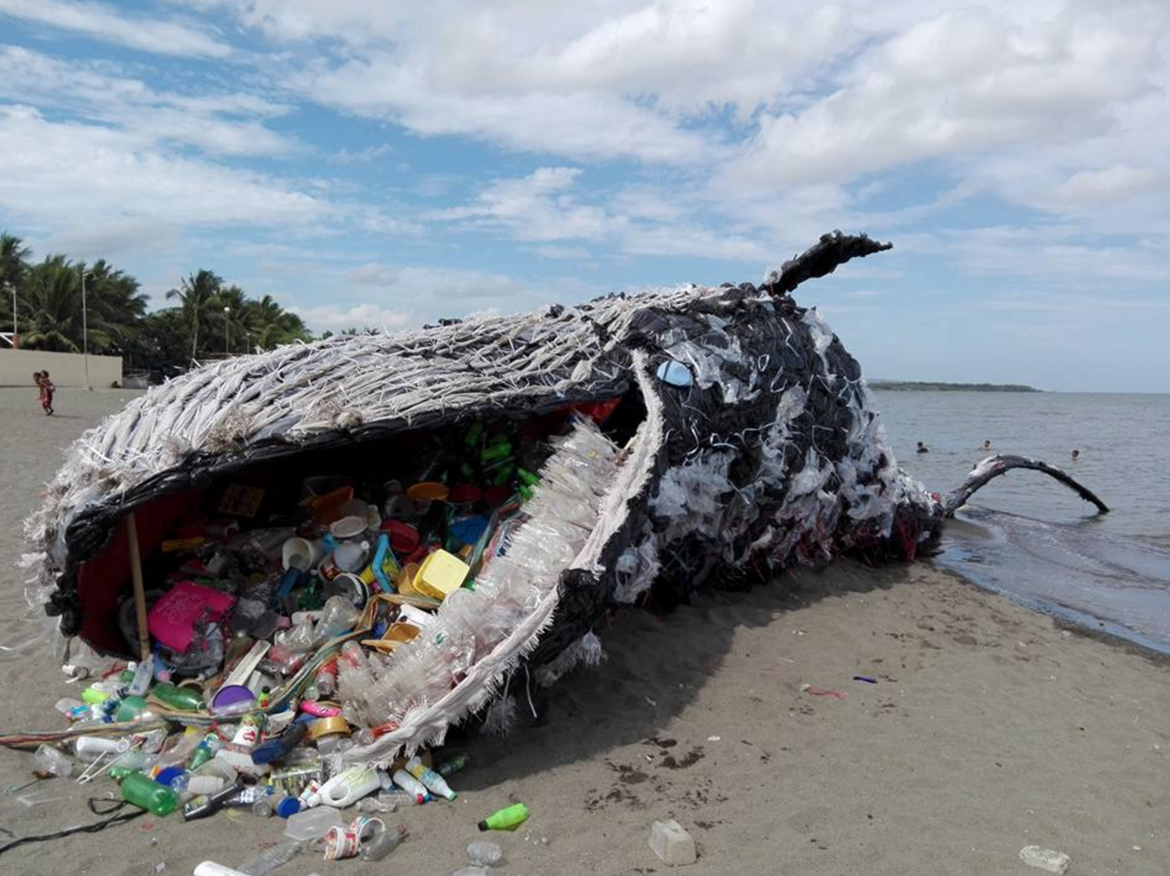
The passing epoch, the Holocene, spanned 12,000 years of relatively stable climate, during which all human civilization developed. But the striking acceleration since the mid-20th century of carbon dioxide emissions and sea level rise, the global mass extinction of species, and the transformation of land by deforestation and development mark the end of that slice of geological time.
The Earth is so profoundly changed that the Holocene must give way to the Anthropocene. (The Guardian)
Right Here * Right Now * The Road of Life Takes a Major Turn  ===================================================================
===================================================================
So, where do we go from here?
How do we move from a highly competitive and hierarchical culture, to a nurturing and cooperative one?
From a fear based culture to a sustainable, caring and natural one?
We CAN birth a new, better, more adaptive way of being.

We can even do it with some grace, style and humor.
The sooner we can naturalize our lives, the smoother the transition can be.
I'm convinced that the more we embrace the solutions, the more we'll be able to buffer the turmoil of change.
..." people who voluntarily reduce energy usage, eat locally grown organic food, make the effort to get to know their neighbors, get off the consumer treadmill, reduce their debt, help protect local biodiversity by planting species that feed or shelter native pollinators, use biochar in their gardens, support political candidates who prioritize addressing the sustainability crisis, and contribute to environmental, population, and human rights organizations are all helping moderate the impending collapse and ensure that there will be more survivors." Richard Heinberg
This course correction needn't be a terrible burden, though of course, it may be for many. It's inevitable.
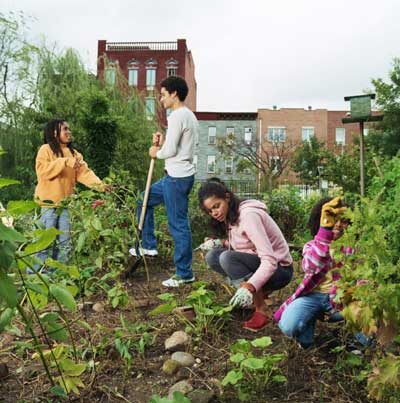
Part of the solution comes from simply reaching across the political and social divides, to cooperate and tackle this big mess together ... might as well, because ... We're all in this together.
It feels good and satisfying, working together with folks who share a vision & a sense of commitment to a more sustainable & peaceful future.
* Find your tribe.
* Share your work and resources.
* Create a saner culture, grounded in the love of all life.
Come on. Jump in.
Please, let's go beyond thinking outside the box.
In fact, let's step right out of the box.

We find ourselves in uncharted territory.
Do we flow with this Great Turning ... this reality that's right at hand?
Or do we "stay the course" and continue with "business as usual"... thereby risking the collapse that comes quite naturally to bloated, unsustainable systems?
What's ahead?
What do we do in unfamiliar, potentially dangerous circumstances?

Well, you SLOW DOWN.
Yes, you slow down and assess the situation -
and then proceed with Alert & Cautious Attention and a Kind Heart.
... this "revolution is in part against the very speedup that has made us all busy, distracted, anxious, and unable even to perceive the tenor of our own times. So it is a revolution in perception and daily practice, as well as against the concrete institutions that spell the misery of everyday life for too many and the destruction of the Earth for us all.
"It may never be finished, but the time to join is now." Rebecca Solnit
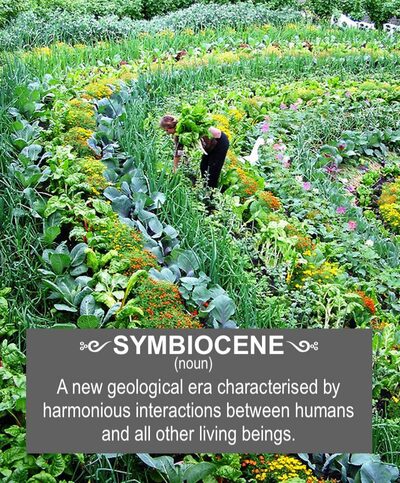
Let's look forward to the SYMBIOCENE

Highly recommended:
"The Great Turning" & "Agenda for a New Economy" by David Korten
"Eaarth - Making a Life on a Tough New Planet" by Bill McKibben
"The Real Wealth of Nations" & "The Power of Partnership" by Riane Eisler
"Exploring Deep Ecology" - Northwest Earth Institute
"The Sacred Balance" by David Suzuki
"Voluntary Simplicity" by Duane Elgin
"Transforming Cultures: From Consumerism to Sustainability" - Worldwatch Institute
"The Transition Handbook - From oil dependency to local resilience" by Rob Hopkins
"Ancient Futures : Learning from Ladakh" by Helena Norberg-Hodge
"The End of Growth" by Richard Heinberg
"The Sustainability Revolution" by Andres R. Edwards
"Living Downtream" by Sandra Steingraber

So hey ... remember this quote?
"We live in a kind of dark age, craftily lit with synthetic light, so that no one can tell how dark it has really gotten. But our exiled spirits can tell. Deep in our bones resides an ancient singing couple who just won't give up making their beautiful, wild noise. The world won't end if we can find them."
Well, deep in our bones, that ancient couple is still singing their wild and beautiful songs.
And if we're going to move from this strange time, toward a saner, kinder, more natural future,we'll need to listen in & find them again.
Gotta find our inner harmony ... our untamed yin, and our undomesticated yang.
Need to harness the fiery, dancing energy ... the moxie ... the qi that can motivate us to change.
 Let's help each other bring our exiled spirits back.
Let's help each other bring our exiled spirits back.
That essence lives in every one of us, waiting to come out and be embraced. Let's lovingly help each other peel away the hardened layers of pain and fear and shame, that get in the way of living authentically.
